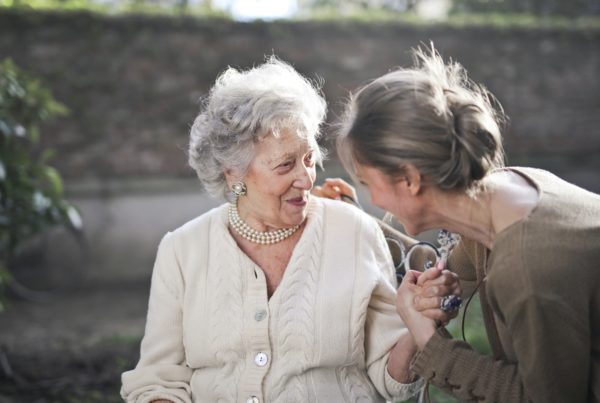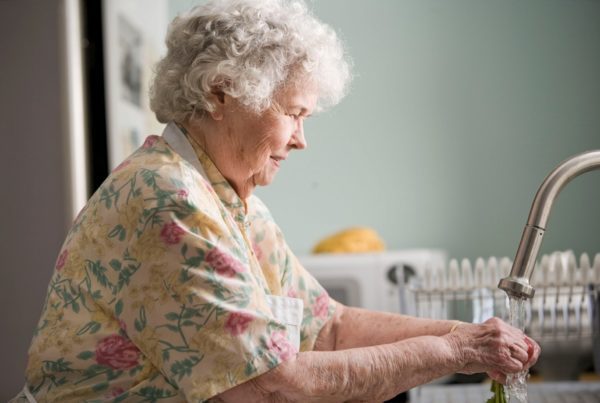After diagnosis, it's time to think about getting help for coping with dementia
A diagnosis of dementia is a big shock to the person receiving it, as well as for their family and friends. It’s important to now take action in preparing for the times ahead and part of this is getting help for coping with dementia.
It’s a good idea to ensure that you have external help, connecting with others going through the same thing can help you to feel less alone, as well as being able to share and learn further coping strategies.
Developing coping strategies for living with dementia can take a period of time. It’s best to start planning what they are at the early stages so that a routine can be developed and incorporated into daily life. Most of these coping strategies will also provide a meaningful quality of life for the person with dementia, as well as their carer.
Learning
First of all, learn as much as you can about the dementia. It will help the person with the dementia, as well as you.
Go with the flow
One of the most important coping strategies of all is to be able to adapt and go with the flow. Dementia is changeable, the person can be okay with something one day, and then not the next. Adapting to these changes will help to reduce stress for both of you.
Keep a sense of humour and stay positive
Dementia is a serious condition and tough to cope with, but you don’t need to lose a sense of humour over it. You might both have a little laugh over the odd things. It’s healing to laugh and as long as you are both laughing then it’s good all round.
Keep a positive attitude, there will be something that you can find to be positive about every day, also affirm the positives with the person who has dementia.
Social strategy
Who are the people in your network of support? Make a list of the people who are going to be there for you should you need them. What role will they play? You might need a ‘go to’ person to talk with at anytime. Your family and friends can represent a good support network, however ask them if they are onboard with this, so that you know you can rely on their help should you need it.
Join some local support groups, there could be a couple that you can go to every month. Even if your relative is in the early stages of dementia, creating a routine for you both can be easier to implement while the person is more able to make decisions and choices.
Things to help with a social strategy:
Memory Cafe – A UK wide initiative allowing people with dementia and their carers to meet regularly for support and activities.
Talking Point – Alzheimer’s Society online support forum.
Local things to do – singing in a choir, attending weekly Church events, or coffee mornings.
Have a family and friends meeting to determine a solid support network and crisis plan.
Health Strategy
It’s always important to eat healthily and exercise, however with dementia, it can help to slow the progress of the disease.
If healthy food and exercise is not already a daily habit, this can be started at the earliest opportunity. Even a ten minute vigorous walk a day will help immediately as well as being a longer term coping strategy. A good daily walk can help to reduce feelings of restlessness for the person with dementia. You should ideally aim for 30 minutes of physical activity a day. Finding a local sports club could help with this.
The person may experience changes in food and drink preferences and find it difficult to eat at times, it’s best to adapt with the person and go with the flow. Keep trying different natural foods and persevere.
Read more about dementia and nutrition from the Social Care Institute of Excellence.
Activities Strategy
As well as being social and maintaining good health, it’s important for people with dementia to still be included in day to day activities, as well as more creative activities.
Include the person in activities as much as you can, and things they feel able to do. Their ability to do things will depend on a number of factors, how the dementia is progressing, light, noise, tiredness etc. Take this into account and be flexible.
Keeping them involved in activities can also help them to retain a sense of purpose in life and this is important as they begin to lose some skills they once had and roles. Turn the focus onto positive activities rather than what they are now unable to do.
Practical Strategies
Help the person with dementia to remain as independent as possible, for as long as possible. Strategies that can help in the home, include using lists, post it notes, keeping things in places they expect to find them, signs on doors and cupboards. There are various small home adaptations for dementia that can help.
Meeting their needs
Learning about dementia will help you to understand how to communicate, as well as how to manage behaviour that is challenging. Any behaviour changes could indicate their needs are not being met, understanding these types of things will also help you both to cope.
Walking the path together
Dementia is a journey, it can be tough and challenging, as well as emotionally draining. It’s important that you surround yourself with positivity and support. Work together and adapt as things change.
Understand the person with dementia and know them as much as possible, use this as an activity for reminiscence and keep notes, this will help you in the longer term.
Respite
If you are the only or main carer for someone with dementia, ensure that you are able to take rest breaks regularly. Home care assistance from MyLife can ensure that the person with dementia is still able to stay at home with their existing routine, while you take a rest break.




